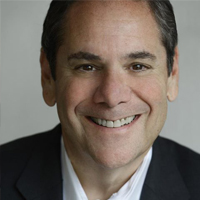
The word “retirement” grates on me like nails scraping on a chalkboard. Let’s face it: We have several choices when it comes to what paths we decide to travel as we age.
Assuming financial security (which means different things to different people), the choice to continue to work in your given career or to do something else is worthy of some long and hard consideration. The default is to continue to do what you’ve done for decades and, in some ways, it’s the easier path.
Leaving the office feet first is an option, I suppose. But if continuing to work, just because it seems easier than having to hurdle the chasm between who you’ve been for decades and who you may become, then perhaps a change of perspective it important. Let’s begin with a very simple concept: Transitions are hard. But if you think back to all the transitions you’ve already conquered, perhaps that might help.
Think about the transitions from childhood into teen years and teen years into college years and college years into career years. All big transitions that pushed your emotional and intellectual selves through those changes. Remember the transitions from being single to married (partnered) and from there into parenthood. All life-altering periods of time that required new skills, new abilities and, more importantly, new mindsets. Chew on that for a while.
A new chapter
Life after career, or as I call it, Chapter X, is a time of discovery, possibility and opportunity. But only if you have an open mind or as Carol Dweck, author of “Mindset, The New Psychology of Success,” says, a growth mindset. Navigating a life stage where work ceases (or is greatly reduced) involves a shift from saving to spending; potential health challenges; and eventually, moving toward the inevitable exit from this earthly coil. It’s a lot to get your head around. So, of course, if you keep working the same way you’ve been for decades, you won’t have to deal with it, right? Well …
A lifetime of competitiveness
Men have been trained from early on to work to be the best, most successful, top dog, head honcho. I remember coaching my son’s baseball team when he was 11. My attitude, as coach, was to help the kids have fun and improve their skills. But not all parents felt that way. I had run-ins with parents who made it clear that winning was the only thing that was important and that my approach was not tough enough.
One parent, whose son was actually a very talented pitcher, began to castigate me for not allowing his son to throw curveballs, I invited him to leave the field or the team; throwing curveballs at age 11 was not prudent for the health of the youngster’s arm. This is just one example of how parents push their kids to “be the best” at all costs. I’m fairly certain you’ve heard similar stories and I hope you see this example as just the tip of the proverbial iceberg when it comes to training kids towards aggression and supremacy.
So how do you take a lifetime of training, habit and reinforcement and channel it into a more productive and satisfying way of living when you turn the page on your career and exit ever so gracefully, stage right? Let’s just say, it takes time, consideration, and the willingness to leave mastery for the fresh fields of novicehood.
Is that leap too much? After all, you have achieved mastery in your career and once that chapter is done, your mastery is only important if you remember what it took to get there and apply it to your new life.
No playbook but plenty of inventory
Consider for a moment what bars the door to your next chapter filled with joy, meaning and purpose. My guess is there are several big factors at play here. The first factor is fear of the unknown; after all, you’ve never been retired before. Other factors might be your ego, unwillingness to be vulnerable, financial insecurity, lack of social connections, health constraints, lack of imagination, or a combination of any or all of the above. But fear is on the top of the list because there is no playbook for this part of life. Everyone’s journey is unique; and that realization is the starting point for moving forward.
Way back in my early career as a CPA, I did a good deal of auditing. In manufacturing companies, inventory is a key component of the work. If you locked in the real value of the inventory, either finished or in-process, you had a pretty good handle on a material aspect of the balance sheet. Extrapolating this concept into your life is a pretty good place to start.
What’s in your inventory of skills, abilities and knowledge base — and what is transferrable into your post-career life? Ask yourself, for example: Are you a people-person? Do you have strong interpersonal skills? Are you more of a solo act? Do you have hobbies that light you up? Are there activities or interests that you’ve held in that secret place that you have stuffed away into a dark corner of your heart? What draws you near and what ideas repel you? All these questions (and more) need to be explored.
Assets and liabilities
In keeping with the balance sheet theme, you want to focus on your assets and potential liabilities. Your assets, other than financial, might be your spirit of adventure or your interest in learning a language, earning an advanced degree, taking up a musical instrument, or getting involved with a non-profit organization. Or perhaps you’re fascinated with mentoring others, inclined to spend time with family and friends, passionate about learning something new, or eager to travel and explore the world. These are examples of your assets.
On the other hand, a keen understanding of your liabilities is just as important. When I think liabilities, in this stage, I am thinking of, for example, financial insecurity, health issues, change resistance, unaddressed emotional or mental health issues. In other words, what might keep you from moving into your next chapter with power, passion and an eagerness to walk a new path. These “liabilities” can only lead to dissatisfying outcomes.
Additional Reading: McDonald’s Might Be OK for Food, Not for Financial Advice
You can do this!
Transitioning from career to life after work, for many men (and ever increasingly women) is no easy feat. But let’s face it, what is that is worthwhile? It demands the best of you; it demands courage and the willingness to fail, flail and feel lousy.
But I urge you to look back over your life and see the same patterns you faced with transitioning from one stage to another. It never feels great; it feels scary and unnerving — that feeling of being ill-equipped for the next step. But you did and eventually, it felt OK until you found your stride.
The same challenges occurred throughout your lifetime, and now you get to do it again. Only this time, the discomfort might feel exponentially worse. After all, you’re not 20, 30, 40, 50 or even 60. You’re entering the final chapters of life in which you have more questions than answers and without the mental or physical stamina you had decades earlier.
‘No one ever died from being uncomfortable’
The fact is, Chapter X (still not using the R-word) is a time of exploration, freedom, learning and generativity. It’s a time to play (Remember playing when you were a kid … a joyful, carefree time of laughter and fun). It’s a time to reflect on where you’ve been, what you’ve learned and how you might pass on your wisdom and experience to others. A time to figure out how to impact the world in a powerful way, a time to connect or reconnect with others, a time to shed worries that surrounded you during your work-life.
Getting through the transition period is not for the faint of heart: It takes intention, commitment and a sense of humor. But as humans, we push back on these most important times of growth and learning because it’s uncomfortable. I will repeat what I’ve said very often: “No one ever died from being uncomfortable!” You’ll get through it. It reminds me of the famous cartoon Pogo, created by Walt Kelly, where Pogo is sitting and thinking and comes to the all-important realization, “We have met the enemy and he is us.”
Michael Kay, author of “The Business of Life” and “The Feel Rich Project” joined the financial services industry in 1985, after nearly 10 years as a CPA. He founded Financial Life Focus LLC in Livingston, N.J., in 2001 and recently transferred ownership to his partner. Michael has been married to his college sweetheart for 44 years. His Chapter X project is available at www.michaelfkay.com along with his podcasts (Apple, Spotify or wherever you listen). Reach him at mk@michaelfkay.com, on Twitter (@michaelfkay) and on LinkedIn.







